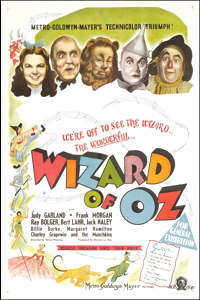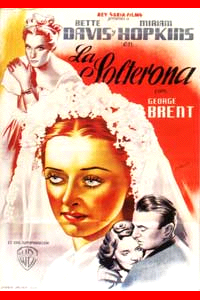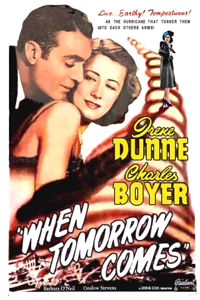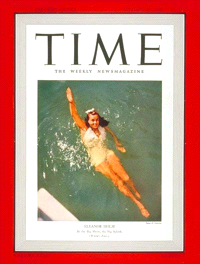- Articles
- Commonweal
- TIME – Reviews
- TIME – Articles
- TIME – Cover Stories
- TIME – Foreign News
- Life Magazine
- Harper’s: A Chain is as Strong as its Most Confused Link
- TIME – Religion
- New York Tribune
- TIME
- National Review
- Soviet Strategy in the Middle East
- The Coming Struggle for Outer Space
- The Left Understands the Left
- To Temporize Is Death
- Big Sister Is Watching You
- Springhead to Springhead
- Some Untimely Jottings
- RIP: Virginia Freedom
- A Reminder
- A Republican Looks At His Vote
- Some Westminster Notes
- Missiles, Brains and Mind
- The Hissiad: A Correction
- Foot in the Door
- Books
- Poetry
- Video
- About
- Disclaimer
- Case
- Articles on the Case
- Hiss Case Coverage: TIME 1948
- Hiss Case Coverage: TIME 1949
- Hiss Case Coverage: TIME 1950
- Hiss Case Coverage: TIME 1951
- Hiss Case Coverage: TIME 1952
- Trial by Typewriter
- I Was the Witness
- The Time News Quiz
- Another Witness
- Question of Security
- Fusilier
- Publican & Pharisee
- Recent & Readable
- Recent & Readable
- Kudos
- Letters – June 16, 1952
- Readable
- Letters – June 23, 1952
- Recent & Readable
- Recent & Readable
- Recent & Readable
- Nominee for Veep
- Recent and Readable
- Recent and Readable
- Democratic Nominee for President
- Recent & Readable
- Recent & Readable
- Fighting Quaker
- Recent & Readable
- Recent & Readable
- Recent & Readable
- Timely Saints
- Nixon on Communism
- People
- Who’s for Whom
- 1952 Bestsellers
- Letters – December 15, 1952
- Year in Books
- Man of Bretton Woods
- Hiss Case Coverage: TIME 1953
- Hiss Case Coverage: TIME 1954
- Hiss Case Coverage: TIME 1955
- Hiss Case Coverage: TIME 1956-1957
- Private
Cinema: Wizard of Oz
Monday, Aug. 21, 1939
Cinema: The New Pictures
 The Wizard of Oz (M. G. M.) should settle an old Hollywood controversy: whether fantasy can be presented on the screen as successfully with human actors as with cartoons. It can. As long as The Wizard of Oz sticks to whimsey and magic, it floats in the same rare atmosphere of enchantment that distinguished Walt Disney’s Snow White and the Seven Dwarfs. When it descends to earth it collapses like a scarecrow in a cloudburst.
The Wizard of Oz (M. G. M.) should settle an old Hollywood controversy: whether fantasy can be presented on the screen as successfully with human actors as with cartoons. It can. As long as The Wizard of Oz sticks to whimsey and magic, it floats in the same rare atmosphere of enchantment that distinguished Walt Disney’s Snow White and the Seven Dwarfs. When it descends to earth it collapses like a scarecrow in a cloudburst.
Producer Mervyn Le Roy‘s 1939 version of this childhood classic follows with reasonable accuracy L. Frank Baum‘s original story (first published in 1900) that sold over a million copies, his stage adaptation that ran 18 months on Broadway with Fred Stone. 1 Dorothy (Judy Garland) gets blown away in a twister from her home in Kansas, finds herself in the Technicolor land of Oz. Homesick, she goes in search of the Wizard of Oz to ask him how to get back to Kansas. Along the way she meets a Straw Man (Ray Bolger), a Tin Woodman (Jack Haley), a Cowardly Lion (Bert Lahr). They too want to see the Wizard. The Straw Man seeks a brain, the Woodman a heart, the Cowardly Lion, courage.
Secret of the Wizard of Oz is that there is no such person: there is only Professor Marvel (Frank Morgan), a kindly, bungling old carnival seer. But the resourceful Professor has a bit of homely chicanery for each of his applicants, gives them all what they desire. No children’s tale is Hollywood’s Wizard of Oz. Lavish in sets, adult in humor, it is a Broadway spectacle translated into make-believe. Most of its entertainment comes from the polished work (aided by Jack Dawn‘s expert makeup) of seasoned Troupers Lahr, Bolger and Haley.
Metro put $3,000,000 into The Wizard of Oz, left out only the kitchen stove. Its tornado rivals Sam Goldwyn‘s The Hurricane. Its final sequence is as sentimental as Little Women. Its Singer Midgets, most publicized of all the picture’s cast, go through their paces with the bored, sophisticated air of slightly evil children.
 The Old Maid (Warner Bros.) is a drama of anonymous mother love, circa 1861-80, outwardly as dated and dusty as a daguerreotype. To bring Edith Wharton‘s old-fashioned story to life on Broadway four years ago required the highly finished services of Actresses Judith Anderson and Helen Menken, oldtime Playwright Zoë Akins. To make it live on the screen, Warner Bros, teamed their pop-eyed Bernhardt, Bette Davis, with an equally fiery filly from off the home lot, honey-haired Miriam Hopkins. The result flounces its skirts a little more boldly than the stage show but, like it, is hardly more than the sum total of two good, sometimes brilliant, performances.
The Old Maid (Warner Bros.) is a drama of anonymous mother love, circa 1861-80, outwardly as dated and dusty as a daguerreotype. To bring Edith Wharton‘s old-fashioned story to life on Broadway four years ago required the highly finished services of Actresses Judith Anderson and Helen Menken, oldtime Playwright Zoë Akins. To make it live on the screen, Warner Bros, teamed their pop-eyed Bernhardt, Bette Davis, with an equally fiery filly from off the home lot, honey-haired Miriam Hopkins. The result flounces its skirts a little more boldly than the stage show but, like it, is hardly more than the sum total of two good, sometimes brilliant, performances.
When Delia Lovell (Miriam Hopkins) tires of waiting for dashing Clem Spender (George Brent) and goes to the altar with a member of the stuffy but dependable Ralston family, she sends Cousin Charlotte (Bette Davis) to break the news to Clem. Delia, who does not suspect that Charlotte also loves Clem, is enraged to discover it, vindictively prevents Charlotte and Clem’s baby from seeking refuge in the Ralston clan after Clem is killed in the Civil War. Instead Delia takes in Charlotte and her baby herself, lavishes affection on Clem’s child, while Charlotte grows through the years into an embittered, bombazined old maid. Because Delia can do everything, Charlotte nothing, for her, Daughter Tina’s unconscious cruelty to her real mother makes the old maid’s refuge a house of hate so terrible that Delia, not a bad sort under her selfishness, finally tries to tear it down.
Though the musty setting of The Old Maid is enough to make anyone susceptible to historical hay fever squirm, few will be unimpressed by the skill with which Director Edmund Goulding manages his spirited costars. Instead of trying to divide the fat bits between them, he so deals out their histrionic diet that they banquet as did Jack Sprat and his wife, cooperatively.
 When Tomorrow Comes (Universal) is like a salty story washed out before the end. Its first sequences show Helen Smith (Irene Dunne) helping to organize a strike among her fellow waitresses at Karb’s Restaurant, making a stump speech on the sisterhood of the working class. But “Solidarity Forever” has scarcely died on Helen’s lips and she has yet to join the picket line when she meets a French concert pianist named Philip André Pierre Chegal (Charles Boyer). Next thing she and the audience know, they have been whisked off for a hurricane-tossed Long Island weekend, bogged in a set of problems which cinemaddicts will not find notable for novelty.
When Tomorrow Comes (Universal) is like a salty story washed out before the end. Its first sequences show Helen Smith (Irene Dunne) helping to organize a strike among her fellow waitresses at Karb’s Restaurant, making a stump speech on the sisterhood of the working class. But “Solidarity Forever” has scarcely died on Helen’s lips and she has yet to join the picket line when she meets a French concert pianist named Philip André Pierre Chegal (Charles Boyer). Next thing she and the audience know, they have been whisked off for a hurricane-tossed Long Island weekend, bogged in a set of problems which cinemaddicts will not find notable for novelty.
Hollywood ribbers had great fun with the title When Tomorrow Comes. Produced and directed by deliberate oldtimer John M. Stahl (Back Street, Imitation of Life), whose method is to take scenes over and over until they suit him, the picture made so much trouble that thin Producer Stahl lost 19 lbs. The circumstance that his picture (which daringly speaks the dread initials C. I. 0. and A. F. of L.) came pat on the cinema industry’s own realistic labor crisis last week was not calculated to make him gain it back.
Notes:
- There was a silent Wizard of Oz produced by Chadwick Pictures in 1925.[Footnote by Time magazine – Editor] ↩
Archives
Tags
Adolf Berle Alexander Ulanovsky Alger Hiss Arthur Koestler Atlas Shrugged Ayn Rand Benn Steil Cold Friday Cold War Communism Dwight Eisenhower FDR George W. Bush Ghosts on the Roof Harry Dexter White Harry Truman Hiss Case House Un-American Activities Committee HUAC Ignatz Reiss John Loomis Sherman John Maynard Keynes Joseph McCarthy Joseph Stalin Karl Marx Leon Trotsky Max Bedacht Middle East National Review Peter the Great Pumpkin Papers Ralph de Toledano Richard Nixon Ronald Reagan Sputnik TIME magazine Tony Judt Vladimir Lenin Walter Krivitsky Westminster Whittaker Chambers William F. Buckley William F. Buckley Jr. Winston Churchill YaltaArt Resources
- B&W Photos from Farm Security Administration-Office of War Information Collection
- Life of the People: Radical Impulse + Capital and Labor
- Art of Marxism
- Comrades in Art
- Graphic Witness
- Jacob Burck
- Hugo Gellert + Gellert Papers
- William Gropper
- Jan Matulka: Thomas McCormick Gallery + Global Modernist
- Esther Shemitz Chambers
- Armory Show 1913
Pages from old website
Official website of Whittaker Chambers ( >> more )
Spycraft
- China Reporting
- CIA
- CIA – Alger Hiss Case
- Cold War Files
- Cold War Studies (Harvard)
- Comintern Online
- Comintern Online – LOC
- CWIHP – Wilson Center
- David Moore – Critical Thinking and Intelligence Analysis
- DC Writers: WC Home
- Economist – Espionage
- Essays on Espionage
- FBI – Rogue DNS Checker
- House – Hearing 08/25/1948
- House – Hiss Subpoena
- InfoRapid: WC
- Max Bedacht
- New York Times – Espionage
- NSA – FOIA Request
- PBS NOVA – Secrets Lies and Atomic Spies
- Richard Sorge
- Secrecy News
- Sherman Kent – Collected Essays
- Spy Museum – SPY Blog
- Thomas Sakmyster – J Peters
- Top Secret America – Map
- UK National Archives
- Vassiliev Notebooks
- Venona Decrypts
- Washington Decoded
- Washington Post – Espionage
- Zee Maps
Libraries
- American Commissar by Sandor Voros
- American Mercury – John Land
- American Writers Museum
- Archive.org – HUAC
- Archive.org – Lazar home
- Archive.org – Lazar Report
- Archives.org: 1948 – Hearings
- Archives.org: 1950 – Sherman Lieber
- Archives.org: 1951 – Sorge
- Archives.org: Ernie Lazar FOIA
- Archives.org: Ernie Lazar FOIA Collection
- Bio – Bennet Cerf
- Bio – Zara Witkin
- Bloomsburg University: Counterattack
- Bloomsburg University: Radical Publications
- Brooklyn Eagle 1948
- Centre des Archives communistes en Belgique
- CIA FOIA WC
- Daily Worker (various)
- Daily Worker: Marxists.org
- DC – Kudos
- DC – ORCID
- DC – ResearcherID
- DC – ResearchGate
- DC – SCOPUS
- Digital Public Library of America
- Erwin Marquit – Memoir
- FBI
- FBI Vault – WC
- Google: Books – WC
- GPO – WC
- GW – ER Papers: WC
- GWU: Eleanor Roosevelt WC
- Harvard College Writing Center – WC Summary
- Hathi: WC
- IISH: Marx Engels Papers
- ILGWU archives
- Images AP
- Images Corbis
- Images Getty Time Life
- Images LOC
- INKOMKA Comintern Archives
- International Newsletter of Communist Studies (Germany)
- JJC/CUNY – HC
- Labor Archives in the United States and Canada
- Life – WC
- LOC LCCN WC
- NBC Learn K-12: Spy Trials
- New Masses (Archive.org) 1926–1933
- New Masses (Marxists.org) 1926–1933
- New Masses (USussex) 1926–1938
- NSA: FOIA requests
- Ollie Atkins Photos
- Open Library: WC
- People: WC
- Poetry: Defeat in the Village
- PSA Communism
- SLU Law: HCase
- SSRN: Berresford – Hiss Case
- SUFL: Collections
- Tamiment: Collections
- Truman Library – John S. Service
- Truman Library – Oral Histories
- Truman Library – WC
- UCBerk * eBooks
- UCBerk: China – Edgar Snow
- UCBerk: China – Grace Service
- UCBerk: China – Kataoka
- UCBerk: China – Mackinnon
- UCBerk: China – Owen Lattimore
- UCBerk: China – Stross
- UCBerk: France – Revolution
- UCBerk: Russia – Bread 1914-1921
- UCBerk: Russia – Comintern
- UCBerk: US – Conservatism WC
- UCBerk: US – Hollywood Weimar
- UCBerk: US – James Joyce
- UCBerk: US – Lawyers
- UCBerk: US – NY Intellectual
- UCBerk: US – Waterfronts
- UCLA Library Film & TV Archive
- UK National Archives: WC
- UMich: Salant Deception
- UPenn: US – Left Ephemera Collection
- UPitt: US – Harry Gannes
- USDOE
- USDoED
- USDOJ
- USDOS
- Wall St + Bolshevik Revolution – Anthony Sutton
- Wikipedia A-D
- WikiSearch WC
- WordPress themes – Anders Noren
- x FSearch – WC


